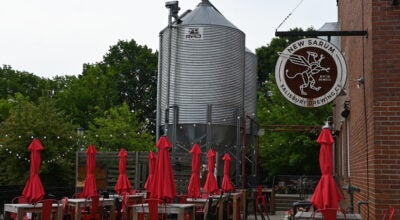Barber says he will lead prayer at Monday's commissioners meeting
Published 12:00 am Friday, March 2, 2012
RALEIGH (AP) — A showdown appears imminent for a North Carolina county commission whose members say they want to keep offering the Christian prayers they’ve always said before meetings, despite warnings from the state chapter of the American Civil Liberties Union.
Rowan County’s commissioners are scheduled to meet on Monday, and it’s Commissioner Jon Barber’s turn to offer the prayer normally given before the start of the session.
“I’m the one who has to give the prayer, and if anyone is wondering if I’m going to buckle, the answer is no,” Barber said today.
That could be a problem, according to the state ACLU chapter, which began contacting government bodies across North Carolina after the U.S. Supreme Court declined to hear an appeal of a ruling by the U.S. Fourth Circuit Court of Appeals that found sectarian prayers at public meetings violate First Amendment protections.
So far, at least 15 government bodies have changed their prayer policies, state ACLU spokesman Mike Meno said.
“We hope the Rowan commissioners decide to uphold the law, as well,” he said.
Last month, the ACLU sent a letter to the Rowan County Commission, whose members typically offer prayers that address God as Father or use the familiar invocation, “in Jesus’ name.” The letter didn’t change that practice, and a commission meeting last month was packed with county residents who offered their support to commissioners for standing their ground.
In a letter that he’s been sending to people who ask about the prayer, Barber said there are important differences between Rowan County’s practice and the situation in Forsyth County that led to the Fourth Circuit Court decision. Most notably, Barber wrote, Forsyth invited members of the clergy to offer prayers, while invocations in Rowan County have always been given by the commissioners themselves.
“I think any rational, reasonable person who reviews this practice would conclude that our invocations simply set a tone for our meetings, while adhering to the time honored practice of beginning public meetings with an invocation,” he wrote.
But that’s not a distinction supported by the court’s ruling, Meno said.
“There is a crucial difference between private and government speech,” he said. “No one is questioning the right of private individuals to pray however they choose, but courts have agreed that invocations used to begin a public meeting constitute government speech and therefore must be kept nonsectarian in order to equally welcome citizens of all beliefs.”
In the ACLU’s letter last month, the group asked Rowan commissioners for a response by March 5. Katy Parker, legal director of the state chapter, said then that the organization will wait to see what commissioners do before deciding on any further action.
Barber expects another large turnout on Monday.
“We’re not trying to be difficult,” he said. “We just have a different opinion on how the First Amendment is interpreted.”


